Reclaiming trade blanket designs: 2 approaches to healing
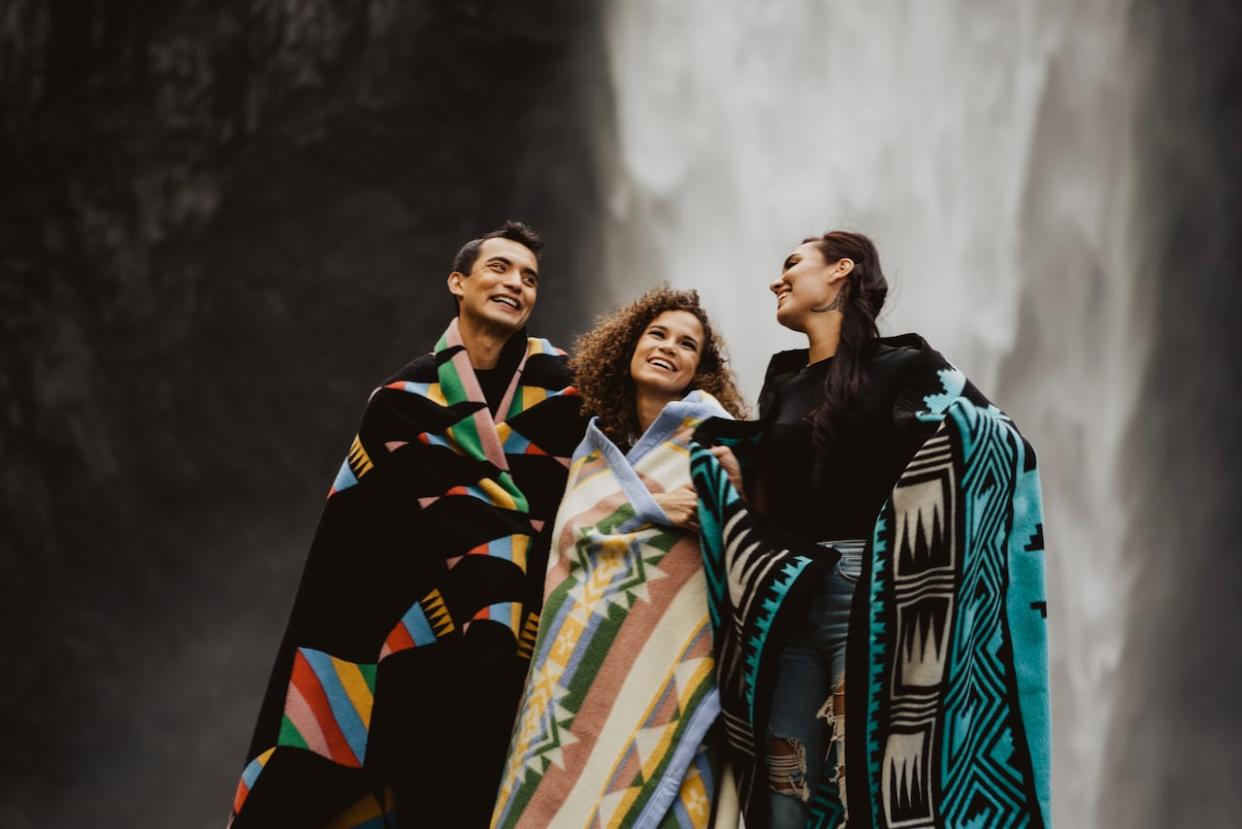
At powwows as a child, Tsuut'ina Nation designer Stephanie Crowchild desperately wanted to be like the other kids wearing their Pendleton coats.
She said she would flip through her mother's Cowboys & Indians magazine and dream of appearing in its pages, wearing Pendleton.
Now the owner of Stephanie Eagletail Designs and mom of four has spent much of the last two years travelling across Canada teaching other Indigenous people how to make their own coats from Pendleton and Hudson's Bay Company blankets.
She said the act of cutting and resewing the blankets from those companies — whose histories are entwined with harm of Indigenous people — is an act of decolonization.
"I feel like I'm taking that stigma… and kind of bringing it back to resilience," Crowchild said of the creative process.
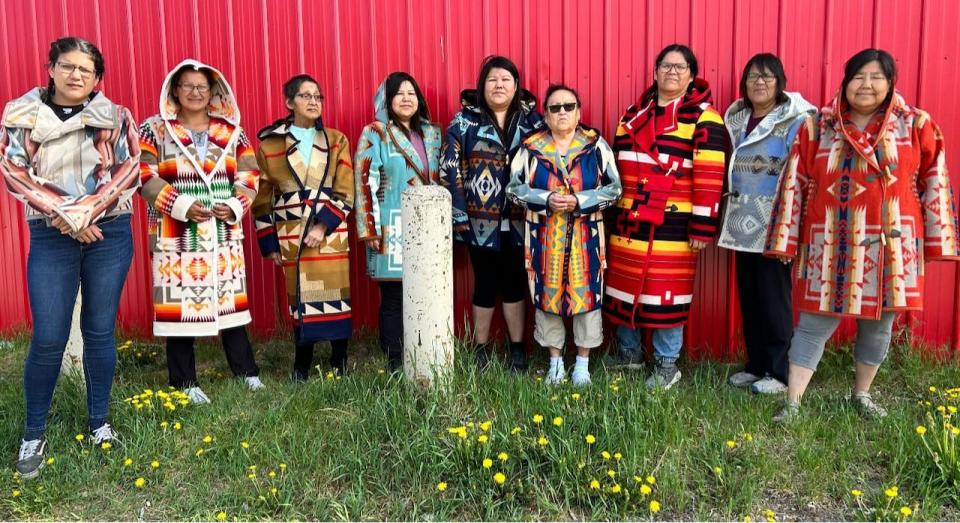
Crowchild helped workshop participants make their own coats out of Pendleton blankets. (Stephanie Eagletail Designs/Facebook)
For many in Canada, the role of the Hudson's Bay Company in colonization is well-known. The company undertook a number of initiatives in 2020 including a series of video interviews (one with Crowchild) looking at its history with Indigenous communities.
Pendleton is less well-known across Canada, but began making wool blankets back in the early 1900s in Oregon.
"I've heard stories about them [Pendleton] taking designs and culturally appropriating Indigenous tribes' designs without their consent," Crowchild said.
Still, Crowchild said the Western designs of Pendleton always appealed to her — and she's not alone.
Eighth Generation is an Indigenous lifestyle brand based in Seattle, owned by the nearby Snoqualmie Tribe. Colleen Echohawk, its CEO, said her company's "hero products" are wool blankets designed by Native American artists.
But as with Crowchild, Echohawk said her family used to have an affinity for Pendleton blankets.
"Like many other Native people who live in this country, I have 25 Pendletons of my own and we've been passing them back and forth to each other for 100 years," said Echohawk, who is an enrolled member of the Pawnee Nation (Kithehaki Band) and an adopted member of the Upper Ahtna Athabascan.
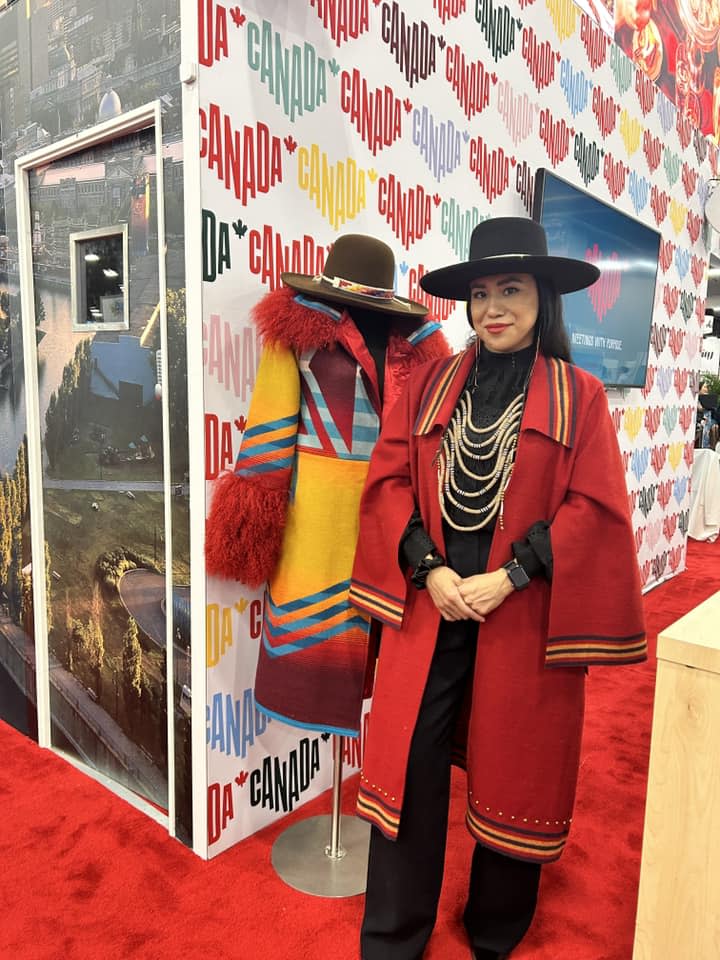
Stephanie Crowchild is the owner of Stephanie Eagletail Designs. (Stephanie Eagletail Designs/Facebook)
Whether for a ceremony or a special life event, Echohawk said Pendleton blankets were a common gift.
But as she grew up and saw people she knew face homelessness and other hardships, she began to ask what Pendleton represents, particularly the company's long-term use of Indigenous designs.
Echohawk said she thinks cultural appropriation comes from a misguided belief that Indigenous people are a "vanishing race" and therefore, traditional art should be collected or manufactured.
She points to the famous design of Pendleton's Chief Joseph blanket as an example.
"That blanket has negatively framed to the larger non-Native community, and the Native community, that this is what Native art looks like," she said.
She said she can show an Athabascan floral pattern to someone who will say it doesn't look Native American to them.
"That's where the harm comes, because we've had non-Native representation saying 'this is what Native design looks like,'" she said.
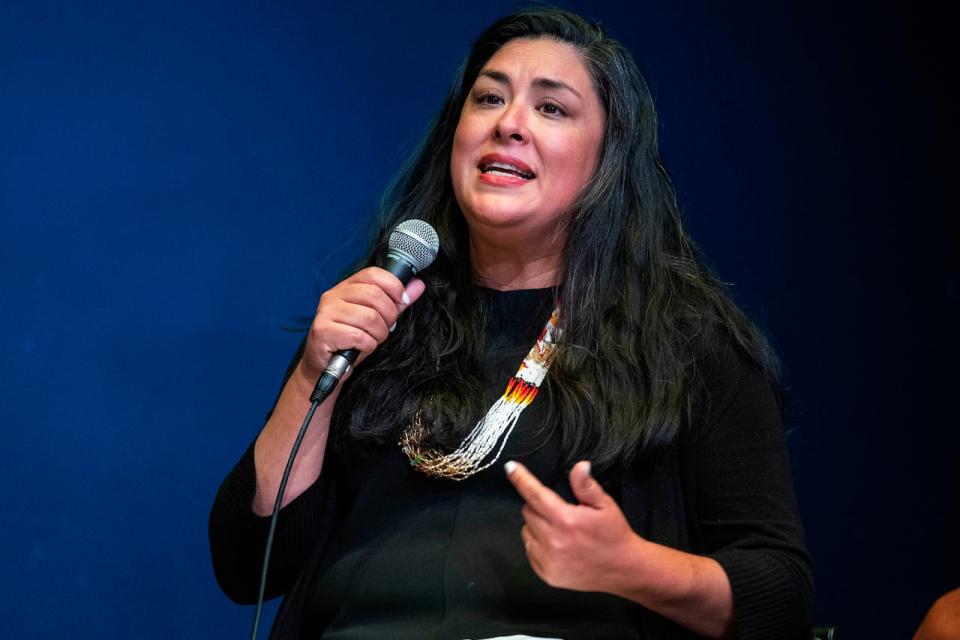
Colleen Echohawk says her priority as the CEO of a Native American-owned business is to support economic sovereignty for Indigenous artists. (Dean Rutz/The Seattle Times via Associated Press)
Reclaiming Indigenous design is something Crowchild has been doing since she made her first coat at 16.
At workshops, she spends 15 minutes with each participant cutting their coats without a pattern before teaching them how to assemble the pieces.
Emotions in the workshops can range from gratitude to grief, she said. She said she always warns people whatever emotions take hold in the process, end up in the coats. She encourages people to bring positive energy despite the difficult associations.
In 2022, the Hudson's Bay Foundation announced that, going forward, all net proceeds from the company's point blankets would support Indigenous cultural, artistic and educational activities.
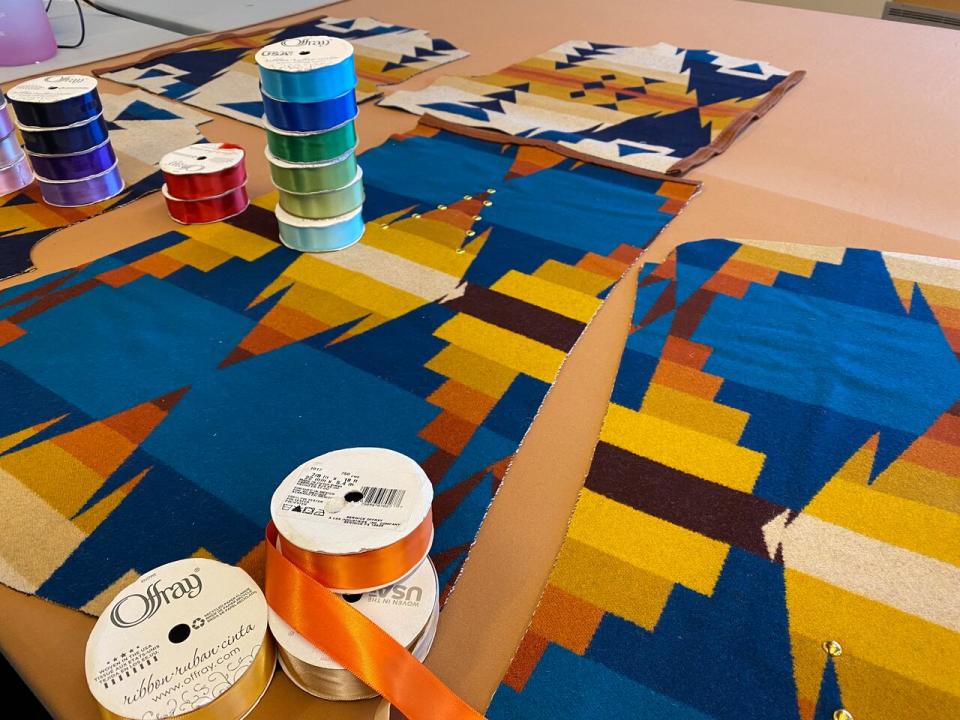
Northerners learned how to make Pendleton coats, made from thick wool blankets, at a workshop facilitated by Stephanie Eagletail at the Prince of Wales Northern Heritage Centre in Yellowknife in January. (Jenna Dulewich/CBC)
Echohawk said people are hungry for reconciliation with Pendleton but "before reconciliation happens, there has to be a radical redistribution of wealth and friendship."
In lieu of an interview Pendleton provided a statement that included a list of Indigenous artists currently working with the company.
"Our motivation is to be able to represent a wide range of voices and points of view, in addition to responding to the growing interest for representation of our Indigenous customers," the company's statement said.
"When we collaborate with an artist, their name and story are attached to the design, allowing them to share their authentic vision."
The statement also highlighted six philanthropic partnerships with Native Americans, including donations Pendleton has made to the the American Indian College Fund for more than two decades.
Echohawk said she's heard of Crowchild's work and is glad to see her creating beautiful coats to reclaim the blankets, although she no longer buys from Pendleton herself.
But she added she completely understands that some people are still attached to the brand.
"In the tribal communities out there, that's just what we know," she said.
She said some communities in Oregon have relationships with Pendleton, and that she respects that, but that she prefers to invest in Native American-owned companies to ensure that "we have economic sovereignty in Indian Country."
"We should be the entrepreneurs, and the designers, and the business owners who are bringing out this art," Echohawk said.
Last year, Crowchild achieved her childhood dream of appearing in Cowboys & Indians (wearing Pendleton) as she shared her work as a designer.
As her coat-making workshops continue to expand, she now hopes to move toward designing her own blankets and moving away from Pendleton and Hudson's Bay.
"I just want to be a good role model when it comes to becoming successful as an Indigenous woman and to encourage others to support Indigenous business and artists."

